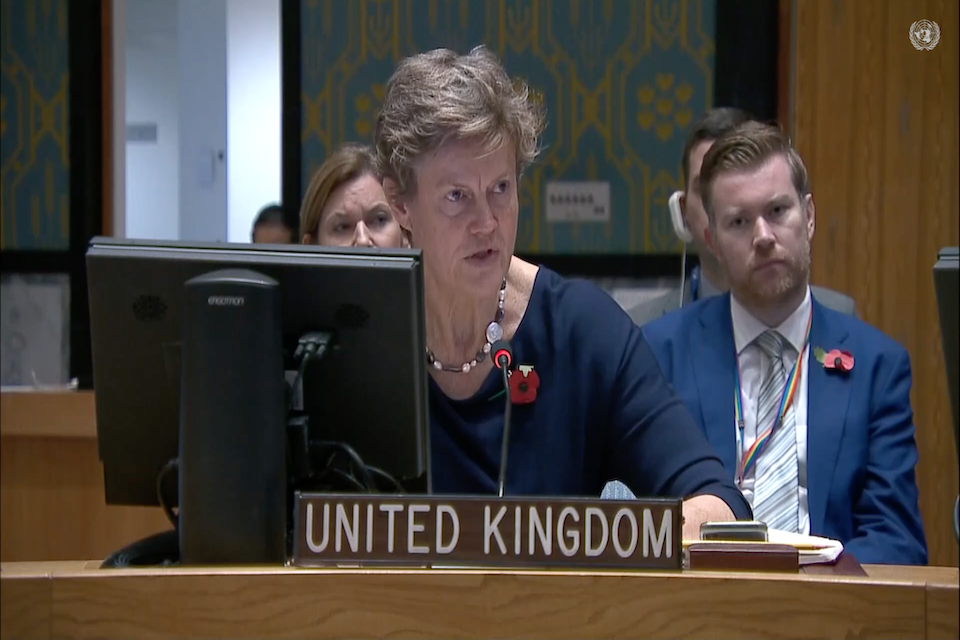Welcoming a holistic, integrated approach to tackling terrorism and protecting those at risk
Statement by Ambassador Barbara Woodward at the Security Council debate on counter-terrorism in Africa

Thank you President, and thank you for convening us today, consistent with your personal leadership on security, including the creation of the Accra Initiative, and with ECOWAS’ robust defence of democratic values in the region.
Moreover Excellency, you’ve joined us this morning from COP27, a reminder that climate is a threat multiplier, and another challenge to peace and security in Africa and around the world. I join others in thanking the Deputy Secretary-General, and our briefers today, and I’d like to make three points to contribute to today’s discussion.
First, we welcome and endorse calls we’ve heard today for a holistic response to terrorism; an integrated approach to tackling the conditions that give rise to terrorism, while protecting those at most risk. We welcome the Accra Initiative’s work to address the security situation and to strengthen regional security and intelligence cooperation.
As the UK, we are working with the Ghanian government to consider how best to support the Accra Initiative.
We’re also working with journalists to promote moderate voices as well as limit the spread of violence, including terrorism. We’re also supporting communities to manage land more effectively and withstand the challenges of climate shocks in regions threatened by violent extremist groups.
And President, we cannot ignore the destabilising role the Wagner Group is playing in the region. They are a driver of conflict and exploit natural resources where they operate.
Whatever the question, Wagner is not the answer.
Second, in the fight against terrorism, it is counter-productive to violate human rights and international law.
This Council has consistently stressed that the fight against terrorism needs to conform with international human rights and humanitarian law.
In our experience, placing respect for human rights at the centre of counter-terrorism campaigns, and in close cooperation with civil society, will bolster their effectiveness, counter-radicalization, and build resilient communities. And this fight will be successful only with the meaningful participation of women who are in many cases disproportionately affected by terrorism.
Third, terrorism and violent extremism are transnational problems that require a coordinated international response.
We’ve heard a lot this morning about the important role of the Accra Initiative, ECOWAS, the AU, and many other regional organisations. I join others in emphasising too the importance of the UN system. Not just the Office of Counter-Terrorism, but also implementing the mandates that are agreed by this Council, including the provisions on UN human rights monitoring.
President, like others we look forward to the new agenda for peace as an important contribution to addressing the triple challenge terrorism poses to peace, security and development. And I thank you.